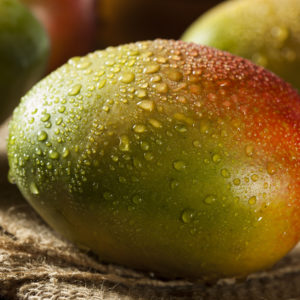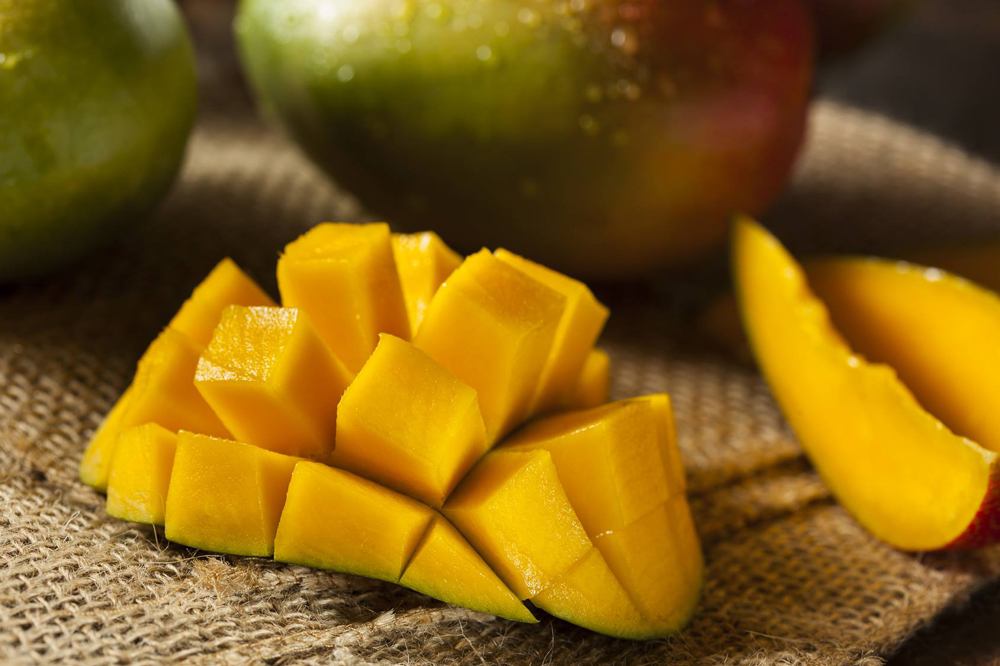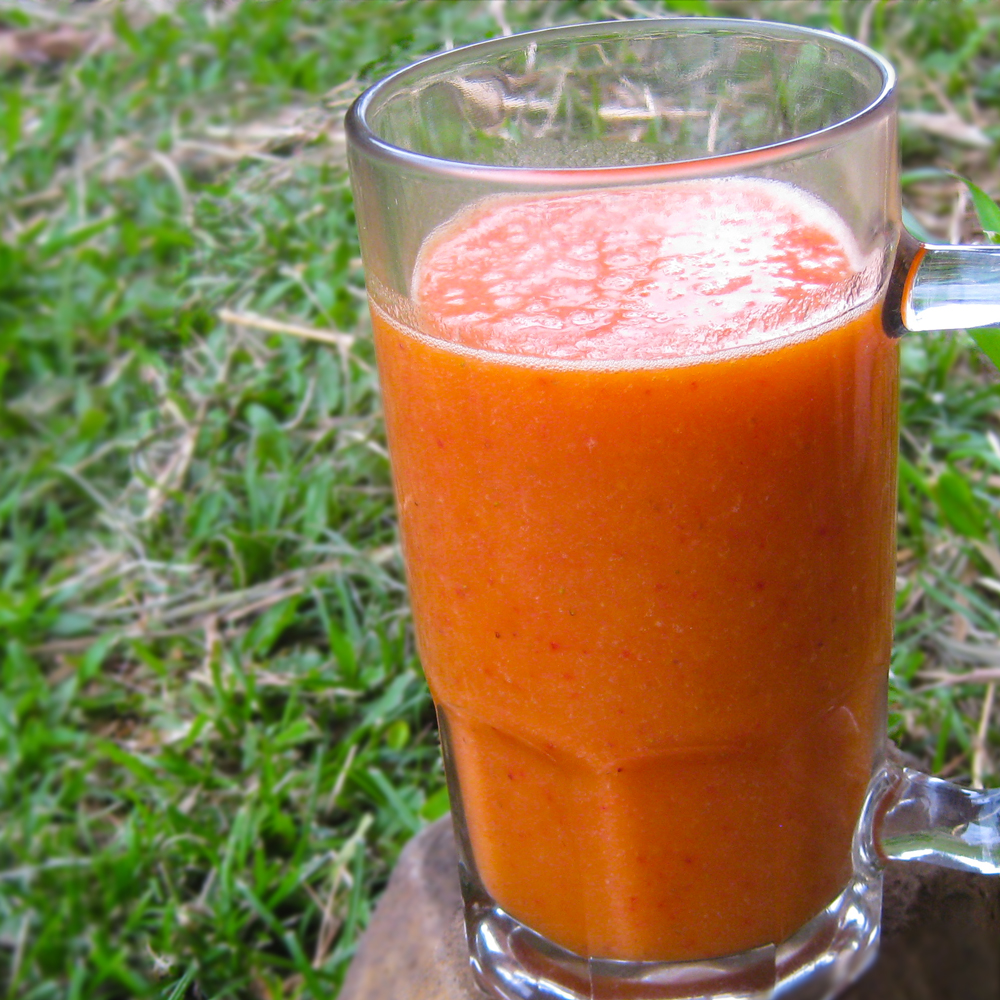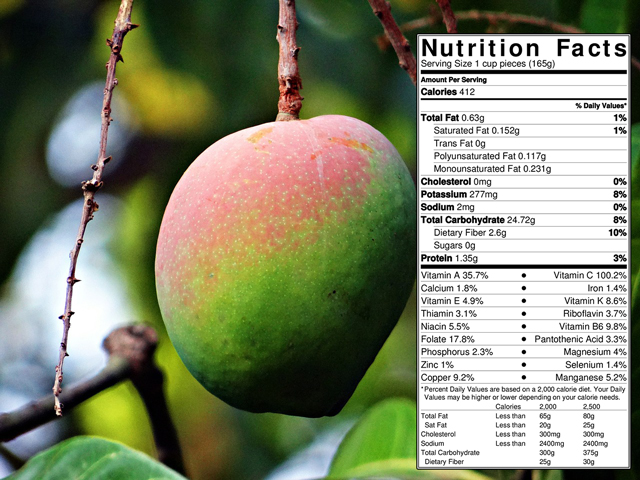
In 4,000 BC the Mango was written in Hindu Vedas as the “food of the Gods” as a symbol of abundance and divine sweetness. This fruit has inspired many an artist, including songs by the Sanskrit poet, Kalidasa, dating from the 4th Century.
The tastes of mangoes range widely. Some mangoes have a “turpentine” odor and flavor, while others are richly and pleasantly fragrant. Ripe, unpeeled fruit gives off a distinctive resinous, sweet smell. It is essentially peach-like but much more fibrous; it is extremely juicy, with a flavor range from very sweet to sub acid to tart. Some say the Mango tastes like a combination of orange, pineapple, and
peach.

There are multifarious ways to eat mangoes, but generally people prefer eating the remaining flesh from the seed and they can savor this delicacy by penetrating the stem end of the fruit with a long central spike of a mango fork and hold the fruit upright similar to a lollypop. Such special types of mango forks are usually available in Mexico. Also, the mango can be cut down the middle on each side of the seed, and one will be left with what is called mango “cheeks”.
One can cut through the flesh, though not through the skin, horizontally then vertically and turn the “cheeks” inside out. Cubes of mango flesh will be ready for serving, either in a bowl or still intact with the skin.

Ingredients:
2 Mangoes, deseeded and without peel
15 Strawberries, frozen
16 oz Orange Juice, fresh squeezed
Blend and serve.








